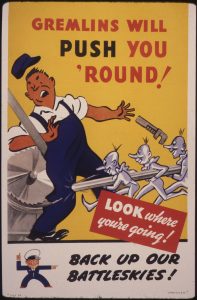Module 12: Worker Well-Being

Description: This module explores physical and psychological factors that affect employee health, safety, and well-being at work. Students will examine workplace stress, work-life balance, occupational health psychology, and emerging topics like psychological safety and resilience. The module covers both individual and organizational approaches to promoting well-being.
Why this Module is Important: Employee well-being has become a critical concern for all organizations, including healthcare and mental health settings where future counselors will work. Understanding workplace well-being helps you become a more effective counselor in multiple ways: you’ll better understand the work-related stressors affecting your clients, recognize how organizational factors impact your own professional well-being, and be prepared to address workplace mental health issues in your practice.
Many counseling students don’t anticipate how much their own work environment will affect their career satisfaction and effectiveness. Understanding well-being principles helps you identify and address factors that could lead to burnout, secondary trauma, or job dissatisfaction – common challenges in helping professions. This knowledge also makes you more valuable to employers who increasingly recognize the importance of supporting employee mental health.
Additionally, many of your future clients will present with work-related stress, anxiety, or depression. Understanding the organizational and workplace factors that contribute to these problems makes you a more informed and effective therapist. This module teaches students how to identify and address factors that threaten well-being while promoting conditions that help both professionals and clients thrive.
Module Learning Objectives: By the end of this module students will be able to…
- MLO1: Classify stress models, workplace well-being factors, organizational health concepts, and workplace assault risk factors. (ULO2, CLO1, APA1)
- MLO2: Evaluate main sources of organizational stress, types of strain, and compare downsizing effects on different employee groups based on research evidence. (ULO2, CLO1, CLO2, APA1, APA2)
- MLO3: Develop evidence-based solutions to workplace well-being challenges including absenteeism and communicate recommendations through professional analysis. (ULO2, CLO3, CLO4, APA4, APA5)

Media Attributions
- Gremlins Will Push You Around © Unknown is licensed under a Public Domain license
- Bored at Work © Ben Wicks is licensed under a Public Domain license
